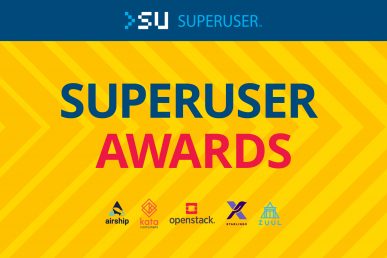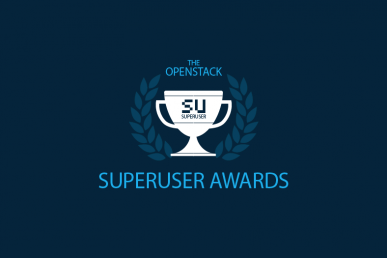Local European financial services companies rely on infrastructure that adheres to local regulatory requirements, often partnering with OpenStack cloud provider, City Network. A Gold Member of OSF, City Network provides public and private cloud environments, receiving the Superuser Award specifically for their research and development, professional services, education and engineering teams.
Keep reading to see how they’ve evolved since winning the Superuser Award at the Berlin Summit in 2018.
What has changed in your OpenStack environment since you won the Superuser Awards?
A lot! First, we are adamant about upgrading, so currently most locations run Train, but a few are still on older versions. Ideally, before summer, all of our locations and clouds will run Train. That in itself of course allows for more functionality and yet again improved stability.
In addition, we have looked to start engaging other projects we have not run before. So before going to Train, we activated Magnum as well as Barbican. Now with Train, we are also activating Designate and Manila. Manila is something many customers have wanted for a long time.
We also had a soft launch of our new cloud management system, written in React. It adds a bit of functionality that our public cloud requires.
What is the current size of City Network’s OpenStack environment?
We currently run well over 10,000 VMs in eight different locations from New York to Tokyo. Our focus is the European enterprise where many times regulatory challenges put a little extra work around how each workload is handled.
What version of OpenStack is City Network running?
Most locations are running Train, but we do have a few installations on Rocky as well. Those on Rocky will go to Train before summer.
What open source technologies does your team integrate with OpenStack?
As a whole, there are about 20 open source projects to make it all come together. OpenStack is of course the foundation to create a stack that can be fully automated. No doubt Kubernetes is something we also make sure our customers can run to orchestrate their containers. Magnum is a part of that container strategy. As with most container work loads, VMs are at the heart of those containers and we run it similarly. We are also looking into Kata Containers and are curious about the other OSF projects.
What workloads are you running on OpenStack?
With 1,200 customers in our public cloud we would say just about any and all types of workloads– from more traditional LAMP installations to modern container workloads with the latest CI/CD implementations pushing code at a fierce rate. As a company we focus on enterprise customers where anything from standard applications to the customer meeting is built out in our public cloud. In our Compliant Cloud, we run workloads mostly related to higher level regulatory challenges from banks to security companies. In Europe many of the leading digital ID companies run their workloads with City Network. So overall there is a very broad set of workloads.
How big is your OpenStack team?
We are about 25 people working with and around OpenStack.
How is your team currently contributing back to the OpenStack project? Is your team contributing to any other projects supported by the OpenStack Foundation (Airship, Kata Containers, StarlingX, Zuul)?
Many years ago we started by contributing more by helping out in other ways than just technical– from hosting OpenStack Days to leading the public cloud group to being on the board, helping out in various committees. Another way was to become a gold member and thus support OSF financially as well. One part of this decision has been because we have felt we are not the programmers that can always jump in and add. However this is changing and we have for some time contributed smaller additions like reviews and some code when we find aspects that need corrections.
At this point we have a more aggressive vision of how we want to contribute technically and all around. We truly believe that we will become better operators if we know the code, as well as the people around the code. The more we engage the better we will become. So we have started to assign people in various parts of our engineering team that will start to contribute code. We just added 20% to Designate, and there are a few people that will work on OpenStack-Ansible for instance. From there we expect to get deeper into other projects as well.
What kind of challenges has your team overcome using OpenStack?
We simply would not be the company we are. By allowing our customers to fully automate the stack with the many projects of OpenStack we offer, we are a huge part of their digital transformation. We are on a journey made possible with OpenStack and of course a number of other open source projects. We do not think anybody can build what OpenStack offers unless you are a hyper scaler. For us, open source and the four opens of the OpenStack Foundation have formed us and how we like to see open infrastructure evolve.
That said, it has not always been easy. OpenStack was difficult to operate a few years back, and is still pretty complex. However, it has made huge strides towards being better in all ways including operation aspects. Today, a majority of our large-scale upgrades go by without incidents and no down time. Five years ago that was not always the case. It also allows for a ton more functionality, truly giving our customers all they need. Combining it with Kubernetes, there are next to no work loads we can not take on today in a dynamic way, allowing for that platform of innovation our customers require, whether a bank or a gaming company.
Another challenge is knowledge. We continue to educate internally but also love to see how the OpenStack Foundation is helping spread the word and trying to engage in educating more people. This will continue to be something we would love to see more of.
OpenStack continues to evolve at a rapid rate and just about all serious challenges are today dealt with and overcome. OpenStack has proven to work well with the most critical workloads and with significant volume. We are delighted to not only have OpenStack as our foundation but to also have joined one of the largest and fun open source communities in the world to work with.
Stay tuned for more updates from previous Superuser Award winners!
Cover Image: City Network
- SK Telecom 5GX Cloud Labs wins the 2020 Superuser Awards - October 20, 2020
- Where are they now? Superuser Awards winner: VEXXHOST - August 11, 2020
- Where are they now? Superuser Awards: City Network - June 18, 2020

)










